Peter Chan: Where Audience Is, Where We Are
Peter Chan, a director and producer, one of the most influential Chinese film creators, and Mr. Zhang Ji, his golden partner and screenwriter, were invited to have an in-depth dialogue at the BJIFF this year.
In 2013, Peter Chan cooperated with screenwriter Zhang Ji for the first time to shoot the film American Dreams in China. Next year, the feature film they cooperated focused on social realities and caused a sensation. In 2020, the film Leap directed by Peter Chan and and screen-written by Zhang Ji passed the perseverance of Chinese women's volleyball team on the big screen, moving the Chinese people. In the masterclass, they told the story about their cooperation in detail through several works and director Peter Chan also shared his experience of film creation in the past decade.
Peter Chan, a director and producer, one of the most influential Chinese film creators, and Mr. Zhang Ji, his golden partner and screenwriter, were invited to have an in-depth dialogue at the BJIFF this year.
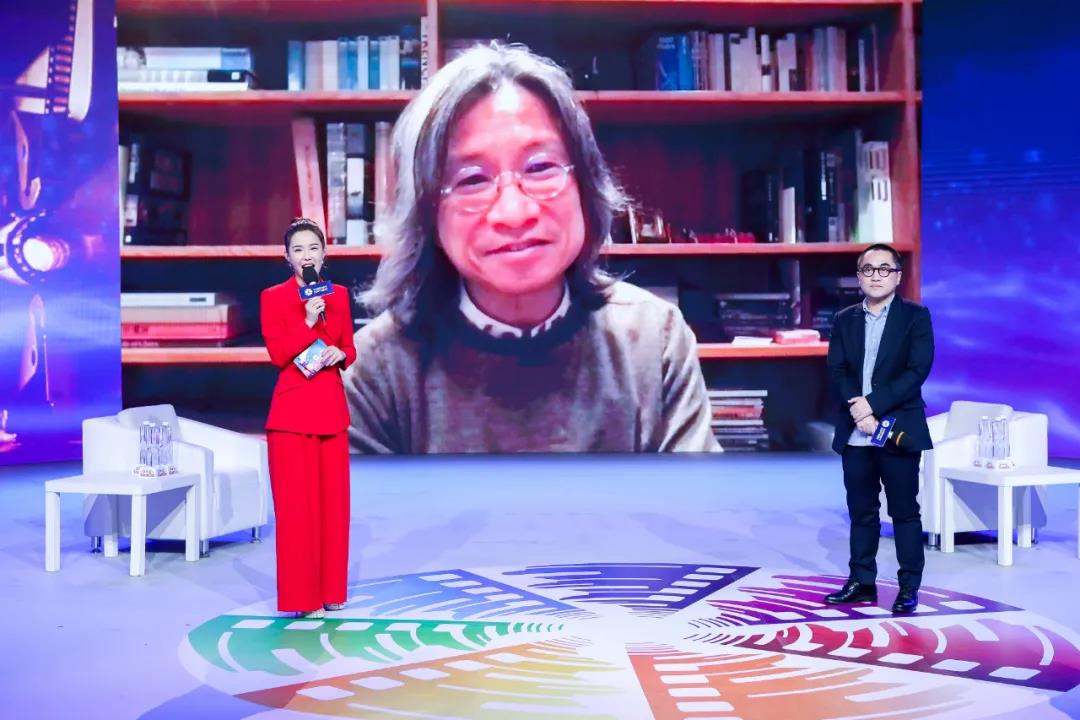
Site of Peter Chan Masterclass
Happy “American Dreams in China”
First of all, Peter Chan and Zhang Ji recalled their first cooperation in Chinese mainland in the dialogue. Zhang Ji recalled affectionately: "It has been almost ten years since we met in 2012 for the first time to create the film American Dreams in China. If I were asked to describe the creation in the past decade, American Dreams in China is still a very happy film for me. It’s my experience full of aspiration and freshness for the films and I can feel it very sweet.”
With this regard, Peter Chan said that American Dreams in China was the happiest film without a bit of stress in about 30 years of his director career. “Although it is about a story of young people in the Chinese mainland after the reform and opening up and I have never experienced it in person, I can still have deep sense of identity on the characters in the film based on my experience when I was young.” Peter Chan thought that American Dreams in China was a watershed which influenced the films in the following decade. Meanwhile, the decade was very important. "I came across a screenwriter whose ideas are so close with mine. After all, if I want to make these down-to-earth films, it will always be very difficult for me no matter how hard I have tried to observe people from different places. I really need a screenwriter from the Chinese mainland, that ’s especially important for a director who never writes scripts.”
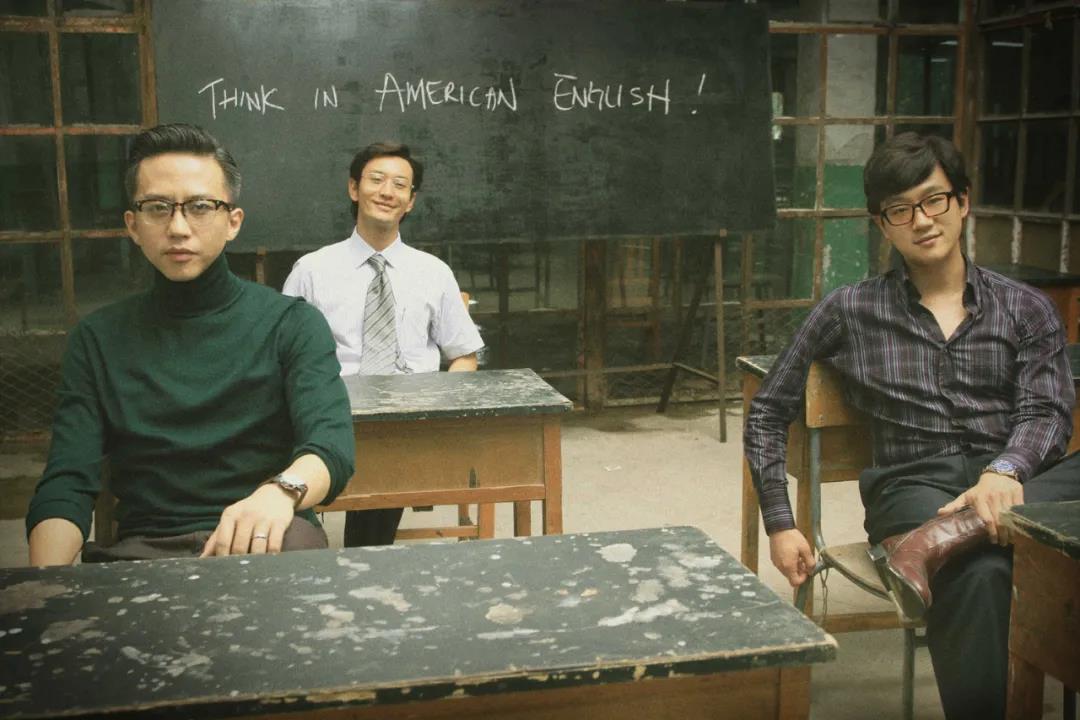
Stage Photo of American Dreams in China
Zhang Ji discovered Peter Chan’s creative rules during their first cooperation in the film American Dreams in China. “You inherit the main tradition of Hollywood-style narration, but you always break the tradition during every film shooting and screenwriting. You are actually against Hollywood in the name of Hollywood.” Zhang Ji believed that the film Leap they cooperated later broke the Hollywood tradition in terms of the structure.
With regard to his preference for “fighting against the style in the name of the style", Peter Chan said that he grew up with the development of Hollywood films, and he preferred the new Hollywood films in the 1970s. “Those born in the 1970s were actually a group of children who grew up under the influence of traditional Hollywood structures, and then decided to be the masters of the family. The artists and films at that time, such as Francis Ford Coppola and The Godfather, Michael Cimino and Deer Hunter, and other films such as Midnight Cowboy and Bonnie and Clyde, they are all my favorite because they are trying to find something new in the traditional narration, so that the audience are willing to enjoy all these films.” Peter Chan believed that if there was no (structural) break, ”only the purely sensational story plots, I personally have no interest at all since I might as well watch the news. There is nothing worth shooting. What’s the most worthwhile is the structural break.”
From Young UFO Era to Mature and Natural Creation in Mainland
Zhang Ji believed that the film American Dreams in China and Peter Chan’s works during the UFO era of Hong Kong film industry were cozy, natural and realistic with even some ridiculous and satirical tone. He also filmed some common men and women, middle-age crisis or middle-class crisis, but later he reflected the social reality and became more courageous to face the real life. Peter Chan agreed with this regard and he said he was relatively young during the UFO era, "all the films are about passion, romance, common men, friendship, love, affection, etc.", and later he focused more on the grassroots with more down-to-earth attitude.”

Peter Chan and Screenwriter Zhang Ji in Dialogue
With regard to different creative periods in Hong Kong and the Chinese mainland, Peter Chan had many profound insights, one of which was the recognition of performance skills by the actors in the two places. He said not too many actors in Hong Kong had ever received formal trainings. "Many award-winning actors may not have even performed a complete film, and they may not remember all the lines. I try to single out their advantages and write something that the audience hasn’t seen in the script, so that their performance will be more real. Many audience may not know the story behind that, so that’s twice the result with half the effort. I have tried this method for many years.” In comparison, the actors in Chinese mainland may have performed many stage plays, and they sometimes may fall into the routines. "We need to pull them out of the routines. The actors in Hong Kong and Chinese mainland are two extremes. I have to pull them in the middle to show their most natural side, which the audience has never seen before.”
As a screenwriter, Zhang Ji had profound understanding of the nature and truth in Peter Chan’s works. He said that it was the nature and reality that director Peter Chan always tried to expresses in his films. Zhang Ji even jokingly referred to his cooperation with Peter Chan as the "experience of bitterness” — “I feel really desperate in terms of some works. You lodged high level of requirement, that is, without any routines, when giving the script to the actors, they should perform in a natural manner.” Apart from the script, Zhang Ji highly praised Peter Chan’s talent in cast selection, “You are not a live-style director indeed, but in terms of selecting an actor to play a role, you are really talented in this aspect. It has nothing to do with the technical issues. It’s about the experience and something you are pursuing, which has also greatly influenced me.”
With this regard, Peter Chan frankly said that films could not follow the routines. “Well, to be honest, what kind of films will never follow any routines? When I was studying films, my teacher told me that there were actually 36 film stories, and all the stories were developed from the 36 ones, so we could not avoid the routines at all. However, what we need to do is to make them not like the routines, make the more natural and alive so that we can feel them a brand new experience every time, this is what should be done for the director. It’s not so difficult to become a director. It’s important to keep patient, persuasive and talkative. You have to communicate with all crew members, so the most important thing is to hold on and persist in forever."

Peter Chan and Zhang Ji in Dialogue
The film Leap, "The Most Unconfident One in My Career"
Through Leap (2020), Peter Chan embeds the perseverance of the Chinese women's volleyball team into the big screen and conveys it to the audience, moving the Chinese people. However, this work became the biggest challenge in their careers. Zhang Ji said that Leap was the film he felt "most difficult to put down”. “It's such a huge and comprehensive subject. It’s not just a sport event, it’s the sports career in a country and in an era. Since we have filmed such a subject now, no one will be able to get involved in the similar subject in the next ten or twenty years. I think it becomes more diverse and comprehensive in terms of the pattern, the theme and the emotion."

Stage Photo of Leap
Peter Chan admitted that he was not a volleyball fan at all, or not even a sports fan. “This film is really the most unconfident one in all my career as a director. After making the choice, we all agreed on this method, but our biggest disagreement was how to make use of these raw materials, whether to make it into a film or a TV series? However, I didn’t feel any regret since filmmaking was such an art of compromise. We were lucky to film the Chinese women’s volleyball team and witnessed the performances of so many outstanding actors, including all the members of the national team fought against the Brazil team once again for us. I think all these are miracles. As a filmmaker, I feel very happy to have such an opportunity to shoot a film."
Zhang Ji totally agreed. He recalled that he burst into tears on the day of the finale of Leap, "I think in such an upgraded creation, I can still find the principle of my own, that is, to film the real people, the struggles, growing, wandering and mutual warming of some grassroots in the era; of course, something cruel will also be filmed, but behind the cruelty, we will eventually end up with warmth and growth.”
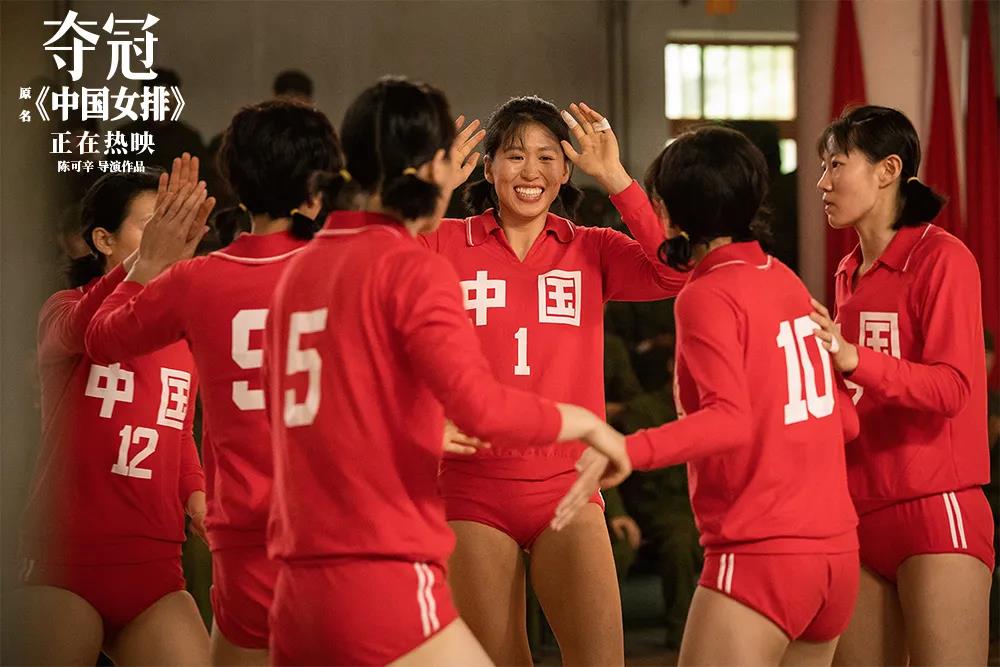
Stage Photo of Leap
Peter Chan also totally agreed with Zhang Ji in terms of “growth". From the director's perspective, he said, "We invited the real national team to perform in the film. Sometimes I felt very puzzled, was I making a film or a documentary? It was a very strange experience for me. In fact, every film is a good chance of practice. Usually every failed film, whether it is at the box office or word of mouth, will make you a leap forward or make better understand yourself. In fact, this is not just about the filmmaking, it is also the same in life. Many adverse situations may help us make better preparation for further development in the future.” In terms of his future path in the film industry, Peter Chan was full of expectations and confidence. "Always keep confident and tomorrow will be better. There will always be something warm and they will turn it into strength, whether it is filmmaking or making judgments and decisions, I will certainly achieve development."
Trial Screening and Survey: Sectional Observations in Hong Kong, Chinese Mainland and Hollywood
As a creator with rich experience in Chinese mainland, Hong Kong and Hollywood, Director Peter Chan shared one aspect of the film industry in various regions, namely the system of trial screening and survey.
Peter Chan recalled that system of screening and survey in Hong Kong mainly came from the midnight. "Most audiences in Hong Kong are grassroots rather than middle-class, so the Hong Kong films never aim to please the elites. Snacks were sold at the midnight and people could enjoy snacks and smoke in the cinema which was usually a two-floor building where common audiences sat on the ground floor while the cast and crew or the people in the circle were watching upstairs. The audience was very straightforward, they applauded if they liked it, or cursed if they didn’t. That was the survey conducted in Hong Kong at that time.” After the midnight, the cast and crew began to make quick adjustment according to the audience's response. “Then we came back to report when the audience laughed, when they cursed and when they went to the restroom. Then we came back to make the edition. We directly cut the film at that time. Since we had no time to remix the sound, an interruption might occur during the screening."
While in Hollywood, the system of screening and survey was carried out in completely different way. "My first film was Love Letter. There was a mechanism to persuade the director, or legally and reasonably 'force' the director to make some changes. So what was the so-called legal force? It’s the audience. They went to the theater and found some survey companies. In fact, we (in Chinese mainland) also conduct the survey, but we didn’t do that to challenge the director. However, it became a tool and weapon for companies, investors and producers to challenge the directors in America. They usually chose a place where the score was not so high, so that they could force you to make some changes in the film. That’s the survey in America."
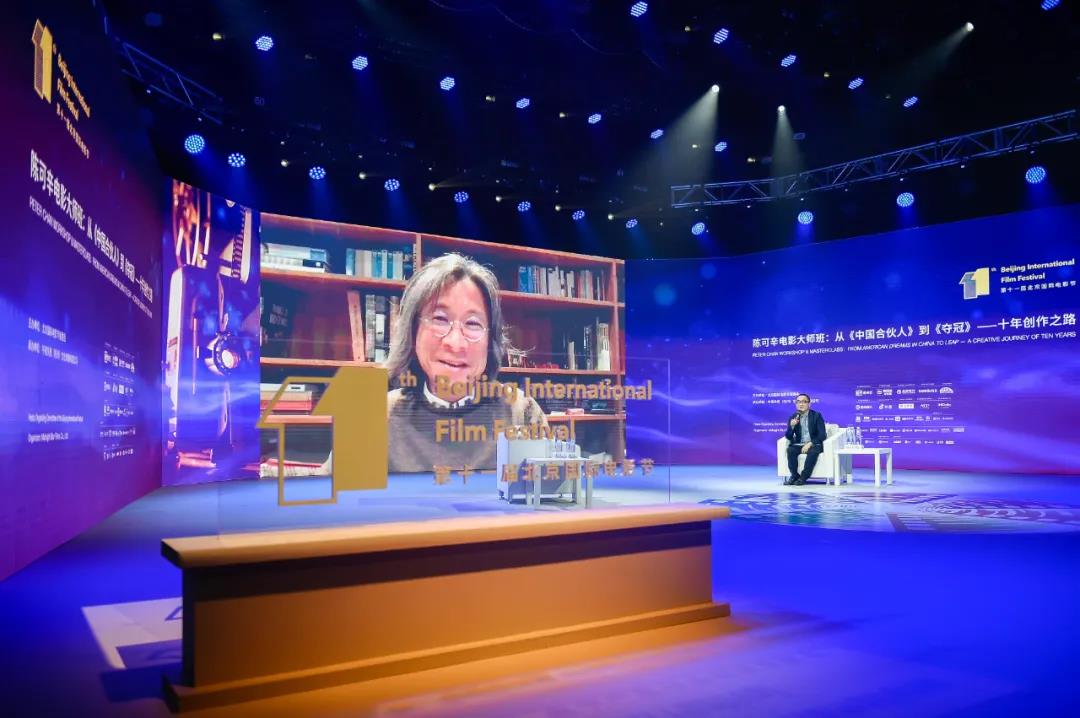
Site of Peter Chan Masterclass
With regard to the system of trial screening and survey in Chinese mainland at present, Peter Chan made highly positive remarks and thought there were several advantages to make the survey, “we have to persuade the distributors and the cinemas, we must give them confidence. Based on the scores obtained in the survey, we can estimate the box office of the film and how much to be spent on the promotion and distribution. These are actually very sensible and rational film investment decisions and they are very useful.” However, Peter Chan also said that the data might not be always correct. “After we finish the survey, we should think independently. We can’t only believe the scores blindly.”
Peter Chan, ”Always on the Ring”
It’s an irreversible trend for films to turn into streaming media nowadays. In response to Zhang Ji's question on the trend of streaming media, Peter Chan didn’t make the objection. "I am really not a film fundamentalist and I am a very realistic person although I love films very much, I also grew up in a big theater and I also think it is very cool to watch films in a theater. Due to the impact of CONVID-19 pandemic over the past year, the film industry in all the theaters at home and abroad has suffered a lot. If we completely resist the streaming (streaming media) and claim we are filmmakers instead of TV makers or online drama makers, we may find our audience will become less and less.” Peter Chan said that he did not like to make films with a sense of mission. "But we cannot avoid or deny that once we start to make a film heart and soul, our film will move people. Once they are moved, their life, outlooks on life and values will correspondingly be changed. We hope to bring what we have to the audience and where the audience is, where we are. This is my personal choice."
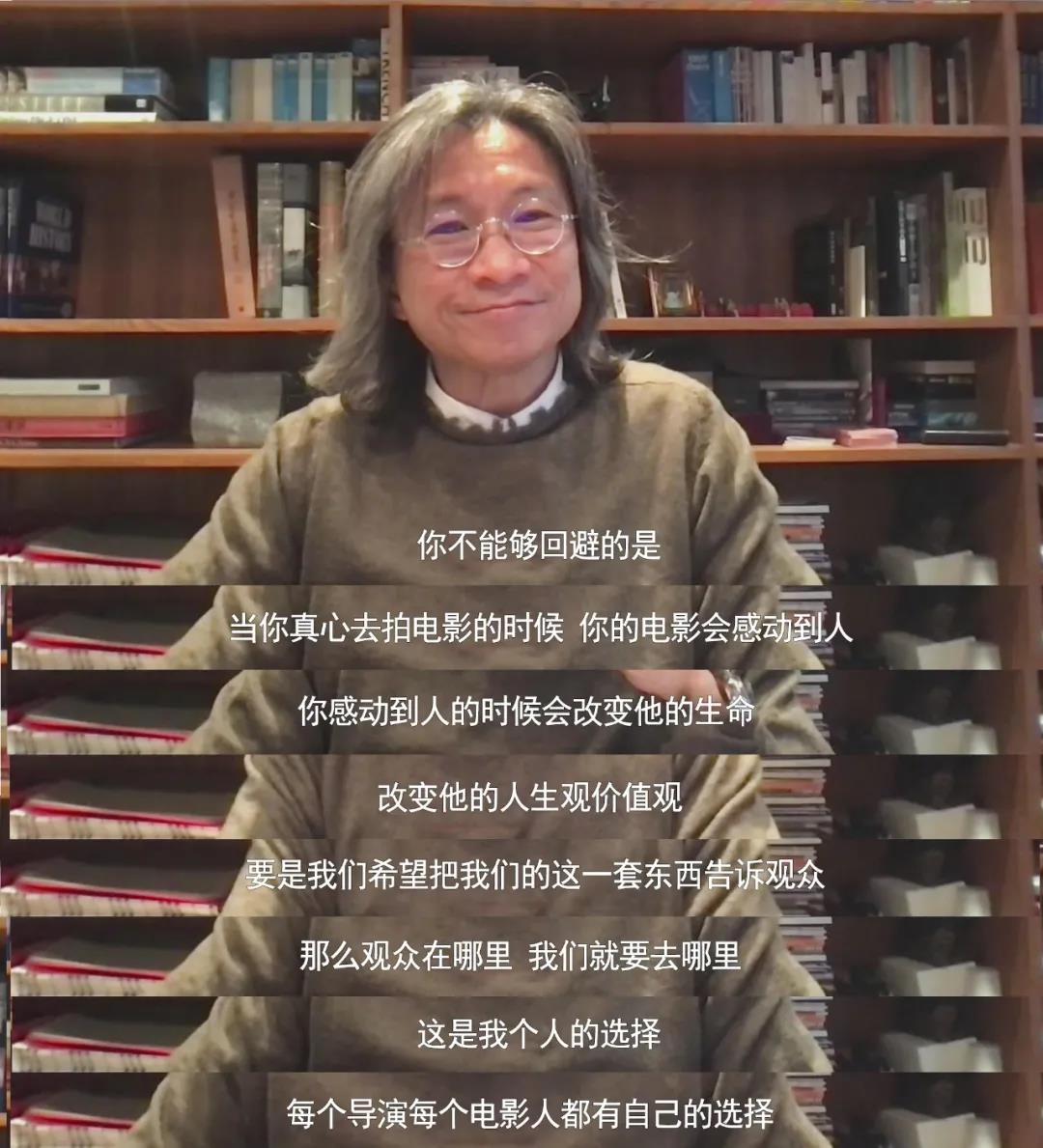
Peter Chan believes:”Where the audience is, where we are. This is my personal choice.”
Facing the opportunities and challenges of streaming media in the future, Peter Chan was full of “fighting spirit” and expectation. He said, "We should always stand on the ring no matter what kind of ring it is. That is, we must always seize our right to discourse. We can tell stories and we can move people. With this ability, we should not give up. I think that’s our responsibility as filmmakers.” In fact, Peter Chan was full of confidence in not only filmmakers but also the film as a medium. "I don’t think the tradition such as watching films in theater will be out of date. It may become a higher level of activity or advanced cultural activity, just like going to enjoy an opera. We should always get prepared to cope with the changes of business model with countermeasures. We should not be stubborn or stick to the routines. We must communicate with young audiences and try to maintain dialogue with them."
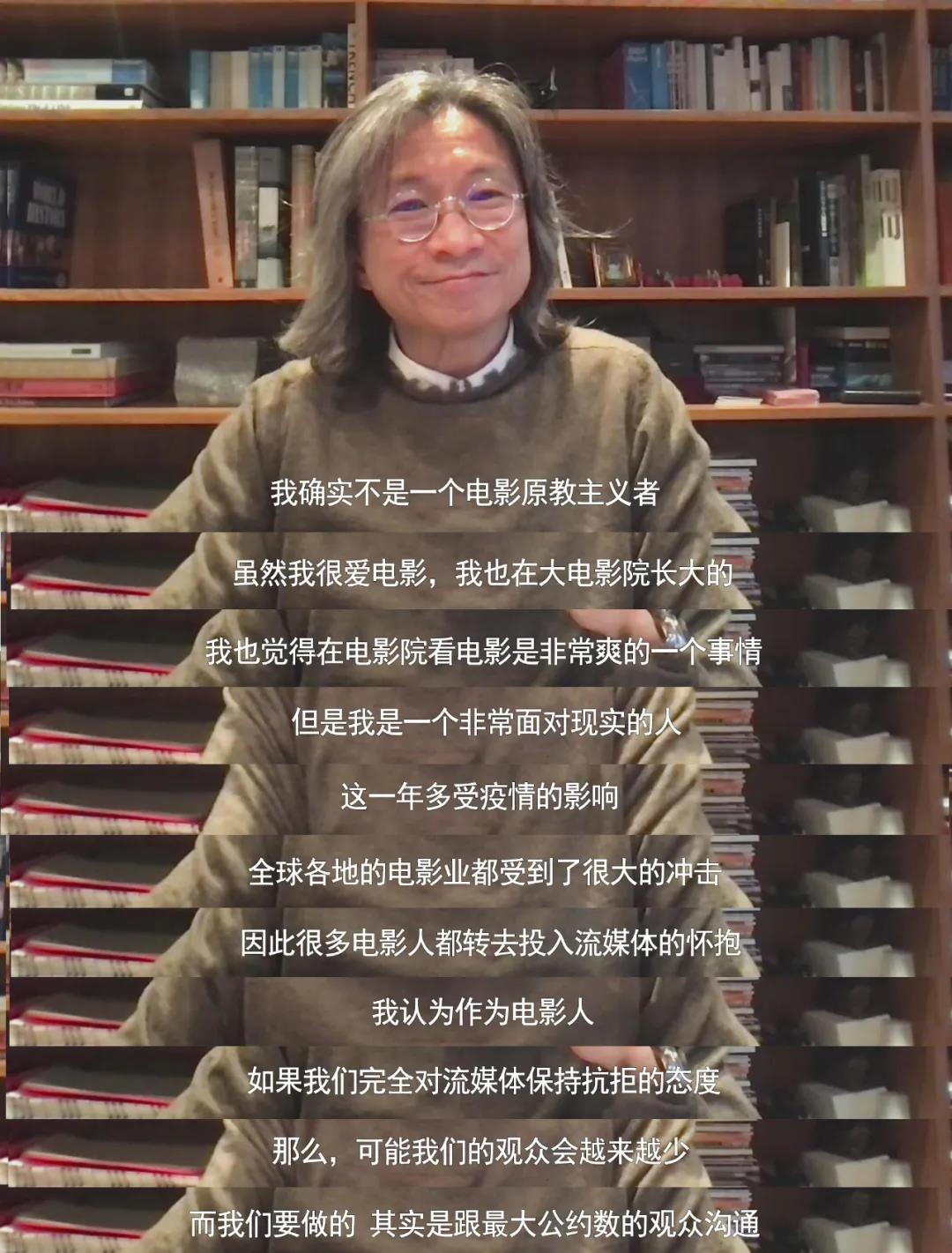
Facing the opportunities and challenges of streaming media in the future, Peter Chan was full of “fighting spirit” and expectation.
